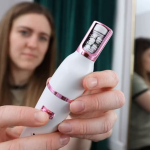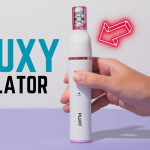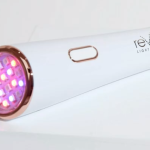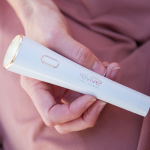If one were to claim that there exists a method of hair removal that can keep skin smooth and hair-free for weeks, would that pique your interests? This isn't a fairy tale; it’s the realm of epilation. An intriguing, albeit contentious topic, the question arises: does epilation remove hair permanently?
While epilation may seem like a modern luxury, it's rooted in ancient history with earliest forms practiced in Egypt and Rome. Epilation, in essence, does not assure complete permanent hair removal, but it does prolong the hair growth cycle. Intriguingly, repeated use of epilators is known to decrease the density and coarseness of hair over time, making it seem nearly permanent.
Epilation can deliver long-lasting hair removal, but it isn't permanent. Over time, it weakens hair follicles, reducing hair growth rate and thickness. Frequencies vary for different individuals, but generally, effects last for 4-6 weeks. Notably, hair regrowth will progressively become slower and finer with continuous epilation use.
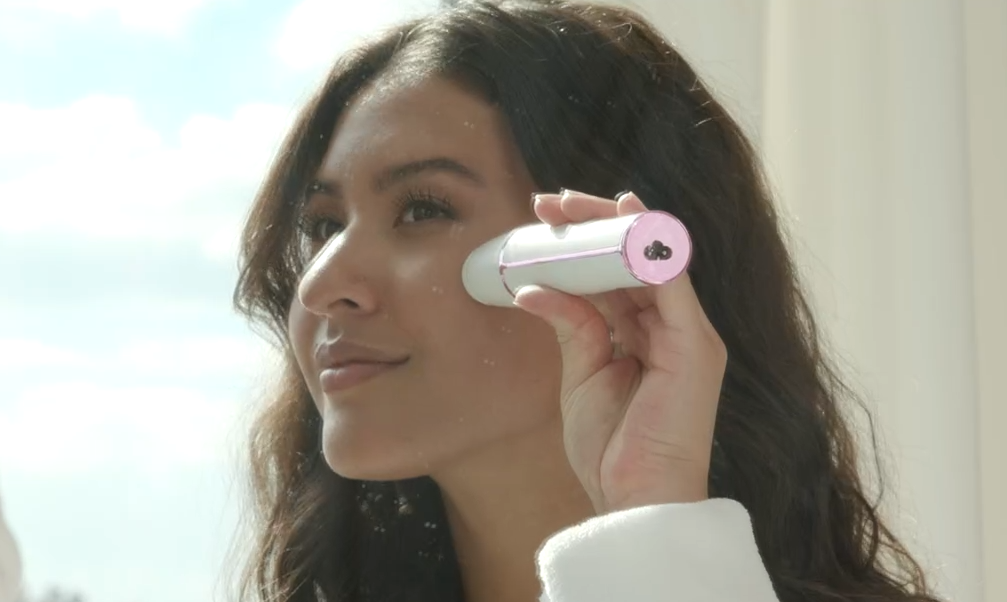
Unraveling the Mechanics of Epilation and Hair Removal
Epilation, a widespread hair removal method, has often sparked curiosity among individuals seeking a long-term solution to unwanted hair growth. The primary query being, ‘Does epilation remove hair permanently?'. Although epilation does not eradicate hair growth entirely, it certainly lessens it over time, and can provide smooth skin for longer durations compared to other methods. Delving deeper into the science of hair growth and epilation can offer a clearer perspective on its effectiveness and permanence.
Understanding the Science of Hair Growth
The hair growth cycle comprises three stages – Anagen (active growth phase), Catagen (transitional phase), and Telogen (resting phase). At any given moment, different hairs are at different stages of this cycle. The effectiveness of any hair removal method, including epilation, is largely contingent on the hair's life cycle.
The Anagen phase sees the most vigorous hair growth and is the ideal time for epilation. Epilating hair during this phase disrupts the growth cycle, meaning that the hair, when it regrows, may be softer, finer, and less noticeable.
Motorized epilators extract hairs from the root, leaving the skin smooth for longer. New growth usually appears anywhere between two to six weeks post epilation, but these hairs are generally thinner and less conspicuous than the original hairs.
Over time, continual epilation can damage the hair follicles, thereby reducing the overall density of hair regrowth. However, it does not permanently eliminate hair growth, indicating that ‘epilation removes hair permanently' is a relatively misguided notion.
The Intersection of Epilation and Hair Texture
The texture of hair is another critical aspect that interacts with the effectiveness of epilation. Individuals with thicker hair may witness a significant change in hair quality and growth after consistent epilation. This is as a result of the epilator plucking the hair from the root, disrupting the cycle, and leading to thinner hair growth.
However, individuals with naturally thin hairs may not observe as drastic a change in their hair growth pattern. Although the hair may become even finer over time, the difference compared to those with thicker hairs is less noticeable.
Above all, it's essential to remember that results from epilation can vary greatly from individual to individual. Factors such as genetics, hormone levels, and hair growth cycles play a pivotal role in the outcomes of epilation, and it doesn't promise ‘permanent' hair removal for everyone.
Exploring Pros and Cons of Epilation
While we have understood that epilation does not permanently remove hair, it nonetheless offers a host of benefits that make it a popular choice for many. However, it's not without its drawbacks. Let's explore the pros and cons to better answer ‘Does epilation remove hair permanently?'
Advantages of Epilation
Epilation enables longer intervals between hair removal sessions. As it plucks the hair from the roots, it takes longer for new hair to reach the skin's surface, leaving your skin hair-free and smooth for weeks at a time.
Over time, regular epilation can lead to less noticeable hair regrowth. Unlike shaving, which can cause stubble to appear even harder and darker, epilated hairs typically regrow in a finer, less conspicuous state.
Epilators can be used anywhere on the body, making them a versatile tool for hair removal. They're especially useful for individuals with sensitive skin that reacts adversely to waxing or shaving.
Lastly, epilators are cost-effective compared to salon waxing appointments or laser treatments. They can be used multiple times, only needing a one-time investment, resulting in considerable savings in the long run.
Disadvantages of Epilation
The foremost disadvantage of epilation is the discomfort level. Plucking hairs from the roots is naturally more painful than cutting them at the surface, as done during shaving. However, the pain tends to decrease with regular use.
Epilation can cause some temporary skin reactions like redness, swelling, and ingrown hairs. Regular exfoliation and moisturization can help alleviate these issues to an extent.
Finally, epilation may be time-consuming compared to other hair removal methods. Getting smooth, hair-free skin might require going over the same area multiple times, which can be cumbersome for larger areas like the legs.
In summarizing, while epilation might not remove hair permanently, its benefits and results often make it a favored choice over other hair removal methods. Consistent use of epilators can interrupt the natural hair growth cycle, resulting in less noticeable hair over time. It's recommended for those seeking a convenient and long-lasting solution to unwanted body hair. It's important to account for individual differences in hair texture, growth cycles, and pain tolerance when considering epilation, as the ‘permanence' of results can vary drastically.
Understanding the Effects of Epilation on Hair Removal
The process of epilation is an effective technique for removing unwanted hair. However, the common misconception is that it can provide a permanent solution. Unsurprisingly, this is not the case. Epilation works by plucking hair from the root, which extends the regrowth time frame as compared to shaving or trimming. But, it does not destroy the hair follicle, which is responsible for hair growth.
Consistent and repeated use of an epilator can slow down hair re-growth over time. Some may even experience finer and lighter hair. Nonetheless, it's important to note that hair removal through epilation is not permanent. The frequency of epilation and individual hair growth patterns is key in determining the time frame for hair regrowth. Thus, while epilation is a longer-lasting solution as compared to other hair removal techniques, it does not promise permanency.
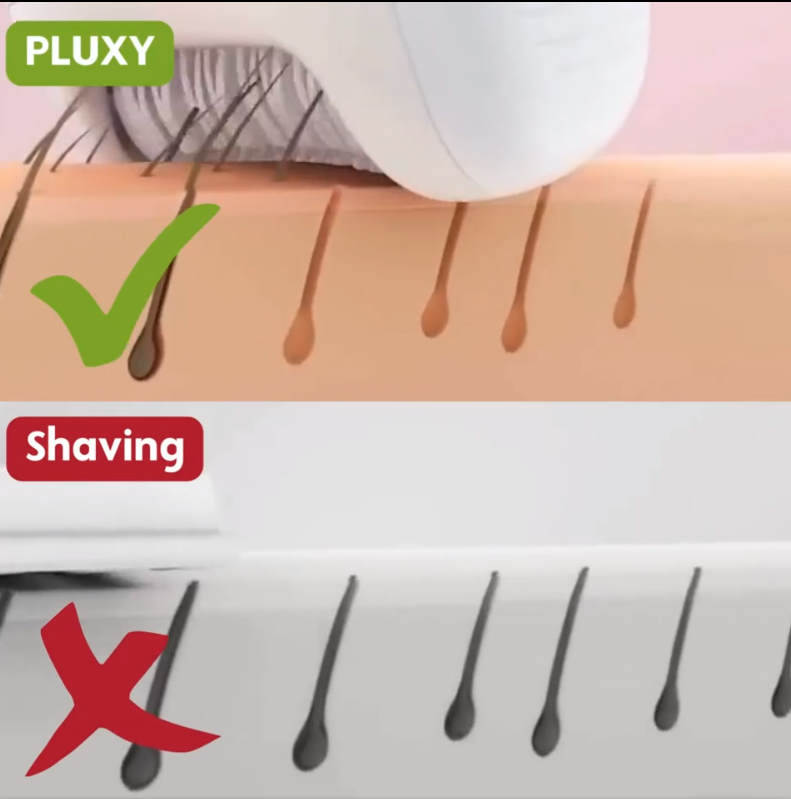
Frequently Asked Questions
Eradicating body hair can be a massive undertaking. One method among many, epilation, has been gaining popularity. Below are some frequently asked questions regarding this hair removal technique.
1. What exactly is epilation?
Epilation is a hair removal technique that directly targets the hair root. Unlike shaving, which merely trims the hair surface, epilation removes the entire hair follicle from beneath the skin's surface.
There are different types of epilators available in the market, including spring, rotating disc, and tweezer-style. Regardless of the type, all epilators are designed to pluck hair out at its root, directly from the skin's surface.
2. How effective is epilation compared to other hair removal methods?
Epilation is considerably more effective than many other hair removal methods. By removing hair from the root, epilation leaves skin smooth and hair-free for a longer period, typically around three to four weeks.
Compared to shaving or hair removal creams, which only remove hair from the skin's surface, you will notice a drastic reduction in the frequency of hair removal sessions. In addition, many women report that hair grows back finer and less noticeable after repeated epilation sessions.
3. Is epilation suitable for everyone?
Generally, epilation is safe and suitable for everyone, irrespective of gender, skin type, or hair thickness. However, individuals with severe skin conditions, open wounds, or infections should avoid this method until fully healed.
Additionally, epilation may not be the best option for those with a low pain tolerance. The process can be somewhat painful, especially during the initial sessions. A slight discomfort may persist until one gets used to the process.
4. What areas are suitable for epilation?
Epilation can be used effectively on many areas of the body. It is commonly used for removing hair from the legs, arms, underarms, and bikini line. Some epilators are also designed for facial hair, specifically the upper lip and chin.
However, care should be used when epilating sensitive areas, and certain areas like the eyebrows or the nose should be avoided due to potential risks associated.
5. Does repeated epilation reduce hair growth?
Repeated epilation may indeed result in a reduction of hair growth over time. This is because the process damages the hair follicle, which could lead to a delay in hair regrowth. Some people even note that their hair grows back finer and less dense than before.
However, it's important to note that this is not a permanent hair removal solution. Epilation, like other hair removal methods, requires regular maintenance to keep the skin smooth and hair-free.
Is Laser Hair Removal Permanent, Safe, Worth It? Dark Skin, Side Effects, Cancer, Home Lasers, Burns
Epilation does not provide a permanent solution for hair removal. While it may thoroughly remove hair from the root giving the impression of being lasting, the hair follicles remain active. Within a few weeks, new hair will grow from these active follicles, requiring another session of epilation.
While epilation does not offer permanent hair removal, it certainly provides a longer-lasting result compared to some other methods like shaving. The frequency with which you'll need to use an epilator may decrease over time if you routinely epilate, as some people report less hair growth with regular use. Please remember that this can vary greatly depending on an individual's unique hair growth cycle and thickness.


